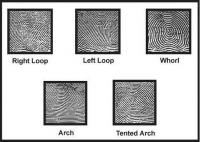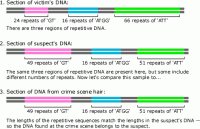-
Large-scale face-search technology helps in fighting crime, terrorism

The rapid growth in surveillance cameras is resulting in millions of face images and videos captured every day. The ability quickly and accurately to search all these images to assist in identifying criminal and terrorism suspects is an important and complex task that can contribute to making communities safer. To help in this effort, MSU has licensed its large-scale, automatic face-search system to NEC Corp.
-
-
NSA’s bulk metadata collection program ends
The NSA on Sunday ended its controversial surveillance program, initiated by the George W. Bush administration in 2006, which collected the metadata of all communications in the United States. The creation of the bulk collection program was the result of criticism by the 9/11 Commission, and many security experts, who argued that the information about the nineteen 9/11 terrorists was available, but that law enforcement and intelligence agencies lacked structure and procedure which would have allowed them to “connect the dots.”
-
-
New technique can tell whether a fingerprint belongs to a male or female

Culprits beware: researchers are taking crime scene fingerprint identification to a new level. They have discovered a straightforward concept for identifying whether a culprit is male or female. It is based on the content in fingerprints — specifically amino acids. Amino acid levels in the sweat of females are about twice as high as in males. There is also a slightly different distribution, due mostly to hormonal differences. The same is true for amino acids left behind in fingerprints.
-
-
Tech companies: weakening encryption would only help the bad guys
Leading technology companies — Apple, Microsoft, Google, Samsung, Twitter, Facebook, and fifty-six other technology companies — have joined forces to campaign against weakening end-to-end encryption, insisting that any weakening of encryption would be “exploited by the bad guys.” Apple’s chief executive Tim Cook recently asserted that “any backdoor is a backdoor for everyone.”
-
-
After Paris, it’s traditional detective work that will keep us safe, not mass surveillance
Before the dust has even settled from the attacks on Paris, familiar calls for greater surveillance powers are surfacing. The desire for greater security is understandable, but that doesn’t mean we should suspend our judgement on the measures proposed to bring it about. It’s widely accepted that intelligence work is the most effective form of counter-terrorism, and that the best intelligence comes from community engagement, not coercion. So we must be wary of the evangelism of those pushing technological solutions to security problems, and the political clamor for mass surveillance.
-
-
Smart sensor detects single molecule in chemical compounds
Researchers have developed a smart sensor that can detect single molecules in chemical and biological compounds — a highly valued function in medicine, security, and defense. The researcher used a chemical and biochemical sensing technique called surface-enhanced Raman spectroscopy (SERS), which is used to understand more about the make-up of materials.
-
-
Telegram IM app recalibrates policies after Paris attacks
Pavel Durov, the creator of the popular instant messaging app Telegram, has said that following the Paris terrorist attacks, his company has blocked dozens of accounts associated with the jihadist Islamic State group. As is the case with other technology companies, Telegram is trying to negotiate the balance between privacy and security: the same privacy-enhancing technology which keeps customers’ communication private, also helps terrorists communicate with each other and plot attacks safe from monitoring and surveillance by intelligence agencies and law enforcement.
-
-
Paris terrorist attacks reignite debate over end-to-end encryption, back doors
The exact way the terrorists who attacked France last Friday communicated with each other, and their handlers, in the run-up to the attack is not yet clear, but the attack has prompted law enforcement and intelligence agencies in Europe and the United States to renew their call to regulate the use of new encryption technologies which allow users to “go dark” and make it difficult, if not altogether impossible, to retrieve the contents of communication.
-
-
Facebook: Governments’ demanding more user data, content restrictions
Facebook says that governments’ requests for information and for the removal of content have increased in the first half of 2015. Such requests have substantially increased in the last two years, since the company began releasing such information. The number of accounts for which governments around the world have requested account data jumped 18 percent in the first half of 2015, to 41,214 accounts, up from 35,051 requests in the second half of 2014.
-
-
Lawmakers want to know scope of federal agencies’ use of cellphone tracking technology
Members of the House Oversight Committee on Monday sent letters to the heads of twenty-four federal agencies asking them whether or not their agencies employ the StingRay cell phone tracking technology. The technology simulates a cell phone tower so it can collect information on mobile phones and their users. The letters are indicative of a growing unease with the unregulated use of the technology by federal agencies.
-
-
German spy agency spied on FBI, UN bodies, and German citizens: Report
BND, Germany’s intelligence service, spied on the FBI, French foreign minister Laurent Fabius, UNICEF — the UN Children’s Fund, the International Court of Justice in The Hague, and the World Health Organization, among many other targets. What may upset many Germans is the fact that the list of BND surveillance targets also included German citizens. Germany has strict privacy laws and German citizens are not allowed to be spied on without a thorough review by the courts.
-
-
NSA phone metadata collection program “likely violates constitution”: Judge
Washington, D.C. district court judge Richard Leon, ruling on Monday against the National Security Agency (NSA), said that the agency’s bulk phone metadata collection “likely violates the constitution.” Judge Leon, ruling in a case brought by conservative activist attorney Larry Klayman, said that the NSA must immediately end collecting the defendants’ information. Leon said he believed it was “substantially likely” that “the program is unlawful,” and that in that event, “the plaintiffs have suffered concrete harm traceable to the challenged program.”
-
-
U.K., U.S. responds differently to Snowden’s revelations about domestic surveillance
Legal analysts note that the United States and the United Kingdom have responded differently to the Snowden revelations. While in the United States steps have been taken to limit the NSA’s domestic surveillance powers, the United Kingdom is going in the other direction. The British government on Wednesday published draft legislation on surveillance and investigative powers – a legislation which is the government’s response to the documents leaked by Snowden. The U.K.’s draft bill not only embeds bulk data collection in law, but it enhances the surveillance and investigative powers of law enforcement and intelligence agencies.
-
-
DNA identification may not be as reliable as previously thought

Increasingly important to criminal investigations, DNA analysis once required substantial samples of blood or other bodily fluids, but advances in the field now make it possible to produce a complete genetic profile of a suspect from just a few cells left behind — so-called “touch DNA.” A new study shows that secondary transfer of human DNA through intermediary contact is far more common than previously thought, a finding that could have serious repercussions for medical science and the criminal justice system.
-
-
U.K. surveillance bill debate: Judicial warrants vs. ministerial authorization for intercepts
Former Conservative shadow home secretary David Davis has said that the plans to grant police and intelligence agencies new powers to monitor suspects online will not get through parliament without a requirement for judges to sign off on spying warrants. A legal report written at the request of Home Secretary Theresa May recommended that judicial warrant rather than a ministerial authorization be required for intercepting individuals’ communications. Parliament’s Intelligence and Security Committee, however, recommended in March that ministerial authorization would be preferable. A draft of a new investigatory powers bill will be published Wednesday, and May said she would “be explaining the government’s position to parliament this week.”
-
- All
- Regional
- Water
- Biometrics
- Borders/Immig
- Business
- Cybersecurity
- Detection
- Disasters
- Government
- Infrastructure
- International
- Public health
- Public Safety
- Communication interoperabillity
- Emergency services
- Emergency medical services
- Fire
- First response
- IEDs
- Law Enforcement
- Law Enforcement Technology
- Military technology
- Nonlethal weapons
- Nuclear weapons
- Personal protection equipment
- Police
- Notification /alert systems
- Situational awareness
- Weapons systems
- Sci-Tech
- Sector Reports
- Surveillance
- Transportation
Advertising & Marketing: advertise@newswirepubs.com
Editorial: editor@newswirepubs.com
General: info@newswirepubs.com
2010-2011 © News Wire Publications, LLC News Wire Publications, LLC
220 Old Country Road | Suite 200 | Mineola | New York | 11501
Permissions and Policies
Editorial: editor@newswirepubs.com
General: info@newswirepubs.com
2010-2011 © News Wire Publications, LLC News Wire Publications, LLC
220 Old Country Road | Suite 200 | Mineola | New York | 11501
Permissions and Policies
